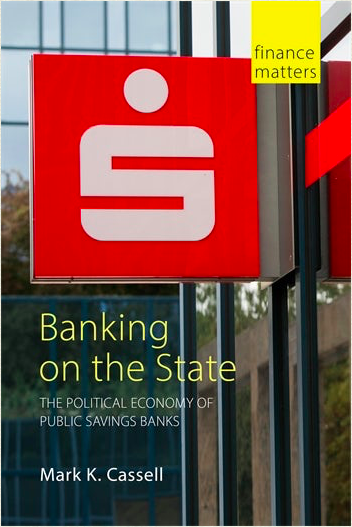Banking on the State
The Political Economy of Public Savings Banks

Germany’s Sparkassen are publicly-held savings banks. No other advanced industrial economy relies as heavily on such small, publicly-owned financial institutions to fuel its economy. They are a puzzle because these relatively small institutions drive one of the biggest and most successful economies in the world.
In theory, their diminutive size should hinder their ability to function in an environment where they compete with the capital and know-how of major international banks. However, between 2006 and 2009, new loans made by Sparkassen increased by 46 per cent. Even during the global financial crisis, when other banks drastically reduced lending, Sparkassen continued to provide liquidity and lend to start-up firms. How have they managed to survive the economic turmoil and global pressures of the last few decades? What has enabled these small institutions to stay at the heart of the German economy? In a period of neoliberal “too-big-to-fail” thinking, how have these relics of an ordoliberal past managed to flourish?
In the post-crisis era, Mark Cassell explores the unique entity that is the German public banking system and the lessons it offers to banking systems worldwide.
Anyone who orders the book directly in Europe via the agenda website can claim a 20% discount by quoting this code: SM20.